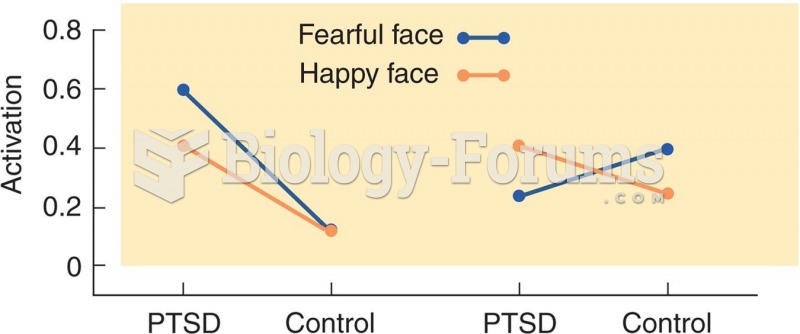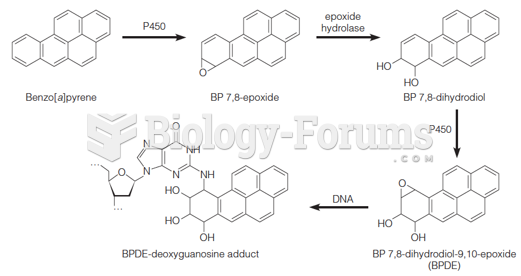|
|
|
Urine turns bright yellow if larger than normal amounts of certain substances are consumed; one of these substances is asparagus.
There are more sensory neurons in the tongue than in any other part of the body.
There are major differences in the metabolism of morphine and the illegal drug heroin. Morphine mostly produces its CNS effects through m-receptors, and at k- and d-receptors. Heroin has a slight affinity for opiate receptors. Most of its actions are due to metabolism to active metabolites (6-acetylmorphine, morphine, and morphine-6-glucuronide).
Bacteria have been found alive in a lake buried one half mile under ice in Antarctica.
Cancer has been around as long as humankind, but only in the second half of the twentieth century did the number of cancer cases explode.







